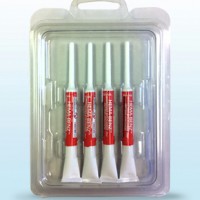Studies show that the problem of sensitive teeth affects more than 41% of all the people. The majority of them do nothing to decrease the pain. They just endure the pain. Most of the people who have sensitive teeth are women.
No matter if the pain is daily or periodical, severe or not, they should not be overlooked. They can really ruin your life and rob you of the small pleasures like: hot chocolate, ice-cream and others. Besides hot and cold, sweet and sour, the air can also cause tooth sensitivity.
The pain caused by sensitive teeth is due to stimulation of the nerve endings. Under normal circumstances dentin is protected by the enamel and gums. Sometimes tooth enamel gets thinner and the gum withdraws, then dentin remains under the influence of external factors and causes teeth sensitivity. Dentin consists of microscopic channels, each of which lead directly to the nerve. And when the dentin is disturbed and the tooth is bare, they are exposed to external stimuli such as hot, cold, sweet, acid, air or pressure.
Tooth enamel can get thinner by mechanical pressure while brushing the teeth, when putting objects such as pens into the mouth. The enamel can also be damaged of the so-called chemical attack: food and drinks containing acids such as soda, squash. Aging can also be a cause for gum recession and sensitive teeth.
The only way to keep your teeth in good condition is to have strict internal and external hygiene. The external is connected to the oral hygiene while the internal means appropriate diet. The toothpaste you use is very important. There are special toothpastes that are made for people with sensitive teeth, smokers, children and more.
In order to select the most appropriate toothpaste you should understand what is its composition. There are three types: hygiene (which only clean); medical and preventive (prevent the occurrence of diseases); medical (they have medical functions but cannot replace the visit to a dentist).
To reduce the risk of tooth decay by creating a protective layer on the teeth, fluoride and potassium are needed. You should choose toothpaste that contains both of them. If you have sensitive teeth and react to hot, cold or sweet food, you should choose medical toothpaste with hydroxyapatite, biologically active calcium chloride, dicalcium phosphate or potassium nitrate. They reduce sensitivity.
The condition of the teeth largely depends on food and drinks you take. To strengthen and maintain their health, you should take calcium and vitamin D; vitamin C should also be taken. Efficient for maintenance of the teeth are green and black tea. Tea is rich in fluoride and in combination with milk it is rich of calcium, too. You should not have carbonated drinks because they contribute to the destruction of teeth.
The word for sensitive teeth treatment in Danish is Isninger behandling. If you want to learn more on that subject, please visit this website. Despite the fact it is in Danish, it is very resourceful and can be easily translated with Google Translator. To find out what the 6 most common causes of sensitive teeth are, click here.

